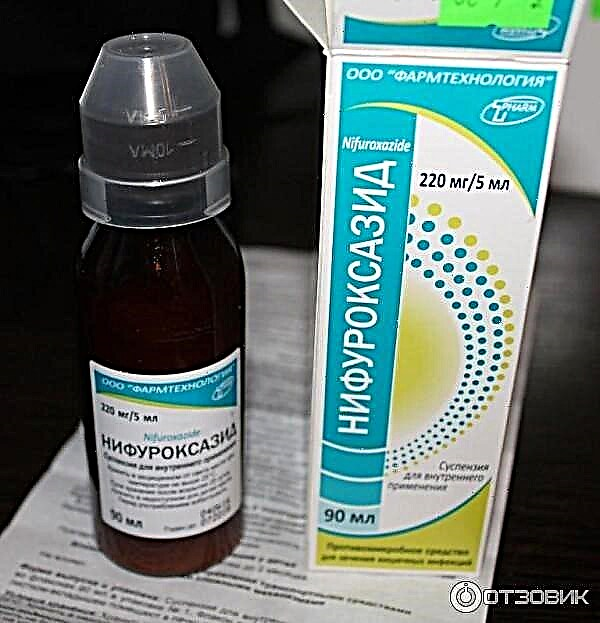
Proper nutrition during pregnancy plays a critical role in the development of the baby and the well-being of the expectant mother. You can often hear that doctors prescribe a protein diet to women during the period of gestation. Why this is done, how to observe such a diet, we will tell you in this article.
What it is?
A protein diet is not a specific diet with rigid recommendations; it is a large list of various dietary regimes, the common distinguishing feature of which is the predominance of proteins in the diet. At the same time, the amount of fats and carbohydrates is artificially reduced. The most famous protein diets include the popular Atkins diets, "kremlevka", but as you understand, these diets have nothing to do with the nutrition of pregnant women.
The protein diet is very simple in nature - it only limits unwanted foods, and the recommended ones can be consumed until satiety - the expectant mother will definitely not have to starve.

Proteins by themselves are not stored in the body, and this is their main difference from fats and even carbohydrate compounds. For the full development of the baby in the womb during pregnancy, it is very important to ensure a constant replenishment of proteins with meals. They are necessary for the proper metabolism of the expectant mother and her baby. Proteins are important as building blocks for the baby. It is for this reason that a vegetarian diet is categorically contraindicated for pregnant women, which cannot provide the required amount of animal proteins. A lack of proteins for a pregnant woman is fraught with metabolic disorders, and for a baby - low weight and slow rates of accumulation of subcutaneous fat.
Most obstetricians and gynecologists believe that women in general and pregnant women in particular are markedly lacking in protein. That is why protein nutrition is recommended for them. For those wishing to conceive, such nutrition helps to increase fertility, and for those who want to bear a healthy baby, it helps to achieve this goal.
The protein diet for pregnant women is different from the mass of other protein diets. The main difference is that expectant mothers are allowed and even strongly recommended to consume not only proteins, but also fiber, a certain amount of carbohydrates and fats with food. The best option is considered a protein-plant diet, in which most of the diet is meat, fish, poultry and vegetables, herbs, fruits.


Who is it recommended for?
In fact, a protein diet is recommended for all pregnant women, without exception, and from the earliest gestational age. It allows you to gorge on without overeating, and also to control weight gain. The increase should be closely monitored, because too large can turn into severe late toxicosis, placental abruption, fetal death, as well as significant difficulties in childbirth.
But first of all, a protein diet is recommended for women who had problems with excess weight before pregnancy, for expectant mothers who have already begun to "go through" kilograms. Such nutrition allows you to slightly reduce the "excess" even in the process of carrying a baby without any harm to his health. In the third trimester of pregnancy, when the risk of anemia is increased, it is also useful to resort to a protein diet for all categories of expectant mothers. This diet is recommended for women who are carrying twins, as well as women who have been able to become pregnant through in vitro fertilization (IVF).
With the threat of miscarriage, slow growth of the fetus, delay in its development, some pathologies of the placenta, doctors strongly recommend a protein-plant diet. Also, such food is recommended for women who are carrying a large fetus.

Nutrition principles
If the doctor advised to follow a protein diet during pregnancy, you should not prepare yourself for the terrible tests of hunger and deprivation. A protein diet is a gentle option for a healthy and proper diet, in which a woman does not have to limit herself in everything without exception.
She can eat carbohydrates, however, replacing fast carbohydrates (cakes, sugar) with slow ones (cereals, bread). Carbohydrates should be included in your morning and lunch meals. In the afternoon, it is better to do without them.
Protein requirements are higher in the second trimester and in the last third of gestation. In the first trimester, the daily intake is set at 70-80 grams. From the second half of pregnancy, this amount should be increased to 120-130 grams per day.
Meals should be fractional, the expectant mother should eat 5-6 times a day, but the portions should be reduced. There is for two - a fundamentally wrong approach, which will only lead to the accumulation of completely unnecessary extra pounds that complicate the bearing of a baby.


Eating according to the principles of a protein diet, a woman must definitely remember about the correct drinking regime. You should drink about one and a half liters of liquid. Pure non-carbonated drinking water (not mineral water!), Green tea, homemade fruit drink, sugar-free compote will do. Carbonated drinks, shop juices are prohibited.
It is best to make yourself a menu for every day, for a week, and even for a month. This will help you better plan your meals and make adjustments if necessary. Special tables will help you take into account the amount of proteins. We are ready to provide one of them for your use.
Women who already have a pathological weight gain, have signs of gestosis, should follow the salt-free version of the protein diet, the rest are allowed to consume no more than five grams of salt per day.
The main volume of food should be consumed before lunch and at lunchtime, making dinner lighter, and the second dinner - completely "weightless" so as not to go to bed with a full stomach and a great need for the body to digest everything eaten before bedtime, to the detriment of normal rest.


Prohibited and permitted products
In order to plan meals in accordance with the principles of a protein diet, you should have a good understanding of what foods should be in the diet and what foods are best avoided. The list of prohibited products looks like this:
- semi-finished products (contain many preservatives and soy);
- food from the fast food area (rich in dyes and preservatives, as well as fats);
- rich bread and baked goods (rich in fast carbohydrates);
- sweets (cakes, pastries, chocolates - a source of carbohydrates);
- mayonnaise, ketchup and other sauces and dressings (contain dyes and preservatives, fats, "whet" an irrepressible appetite);
- mushrooms;
- canned food (this applies to canned meat and fish, and canned vegetables, salads, lecho);
- coffee, strong black tea;
- grapes and bananas (too sweet).


Now, having freed the refrigerator from harmful and unnecessary, we will begin to form a list of useful and necessary products, on which the future mother's nutrition will be based. If you follow a protein diet, you need:
- lean fish (except for herring, mackerel);
- veal;
- beef (first and second category);
- pork (lean parts such as ham)
- any chicken and turkey meat;
- seafood (in the absence of allergies to them);
- milk and dairy products (no more than half a liter per day);
- cereals (with the exception of semolina, pearl barley, rice);
- fresh (raw) vegetables and fruits (potatoes - limited);
- nuts (in small quantities and only if there is no allergy to them);
- berries.


It is clear that it is quite difficult to maintain a certain diet for nine months from a psychological point of view. Therefore, sometimes, when it becomes completely unbearable, the expectant mother can eat a piece of marshmallow or marshmallow, a small portion of ice cream (only high-quality, without vegetable fat), honey and jam (homemade and in small quantities).
Contraindications
The protein diet is not recommended for expectant mothers with chronic intestinal and stomach diseases. Care should be taken to switch to such a diet for women who have kidney disease.
It is strictly forbidden to eat with an abundance of protein foods for women with heart disease. Also, you should not base your diet on the predominance of proteins in women with underweight and too little weight gain at the current time of gestation.
Before starting a diet with a predominance of protein and plant foods, you should definitely consult with your doctor. It is possible that such a diet will not only not help you, but also cause significant harm to health.

General recommendations
At first, expectant mothers may think that the list of allowed foods is too small and the diet from it will turn out to be meager and monotonous. It's a delusion. The protein diet for pregnant women, of course, has its limitations, but not to such an extent that you feel a lack of variety.
When drawing up the menu, it should be borne in mind that all permitted foods are best cooked in a certain way that will preserve the protein structure. Frying in oil, for example, destroys it, and besides, fried steak is saturated with fat, which is completely unnecessary. Therefore, meat products and vegetables can be boiled, baked, stewed. But fry is not worth it. However, this prohibition is not very restrictive, because you can cook anything from the products listed above - meatballs, baked steaks, steam cutlets, stewed and baked fish dishes, soups.
Vegetables are preferably eaten raw. Salads are welcome, but with vegetable oil you need to be more moderate, and avoid spices altogether. Milk is a must every day. If you have milk intolerance (which is not so uncommon among the adult population of the planet), you can dilute and drink infant or protein mixtures, if the doctor approves them.


It will be optimal if a woman receives recommendations from a nutritionist who will take into account her individual characteristics - age, height, weight, percentage of fat and muscle mass, gestational age, concomitant pathologies. This will give you a personalized menu.
All the necessary substances should be included in every meal. This is the main principle of nutritional balance. In other words, a woman should have proteins, a limited amount of carbohydrates, and fats in breakfast, lunch and dinner. An example of a successful and balanced meal looks like this:
- salad of fresh cucumbers and tomatoes, seasoned with half a teaspoon of vegetable oil - 150 grams;
- vegetable soup with meatballs (100 grams);
- steamed pink salmon steak (100 grams);
- boiled buckwheat without oil (60 grams);
- an Apple.
During snacks (between breakfast and lunch, between afternoon tea and dinner, after dinner), it is better to limit yourself to one product - it can be fruit or yogurt, cottage cheese.

30% of daily calories should come from the very first, morning meal, 10% - for lunch, 40% - for lunch, 10% - for an afternoon snack and the same amount for dinner. The total calorie content per day for a pregnant woman may be different, it is recommended individually, taking into account many factors. On average, this is 1900-2200 Kcal.
Reviews
Many women who tried to adhere to a protein diet during gestation say that it is quite difficult to restrain themselves from eating prohibited foods, especially at the very beginning and at the end of pregnancy. The situation is aggravated by going on maternity leave. A woman becomes more free, she has time to relax, and at this time, for some reason, it becomes unbearable from the thought that lying on the couch, one cannot afford a couple of chocolate bars and ice cream.
Many people note that with the transition to a protein-plant diet, well-being improves significantly, even the signs of toxicosis, if any, become more "smoothed", less pronounced. For many, this approach to nutrition helps to overcome the first and most difficult trimester of pregnancy.

Many people point out one big drawback - the relative high cost of permitted products. Good veal, fish, high-quality dairy products, cheeses are quite expensive, and a new diet can significantly hit the family budget. However, on the other side of the scale is the health of the baby, and usually women are not stopped by the high cost of good and high-quality products from the permitted list.
This diet helped almost all pregnant women to "maintain" normal weight gain, which later greatly facilitated the task of getting in shape after childbirth.
For information on how to eat right during pregnancy, see the next video.



